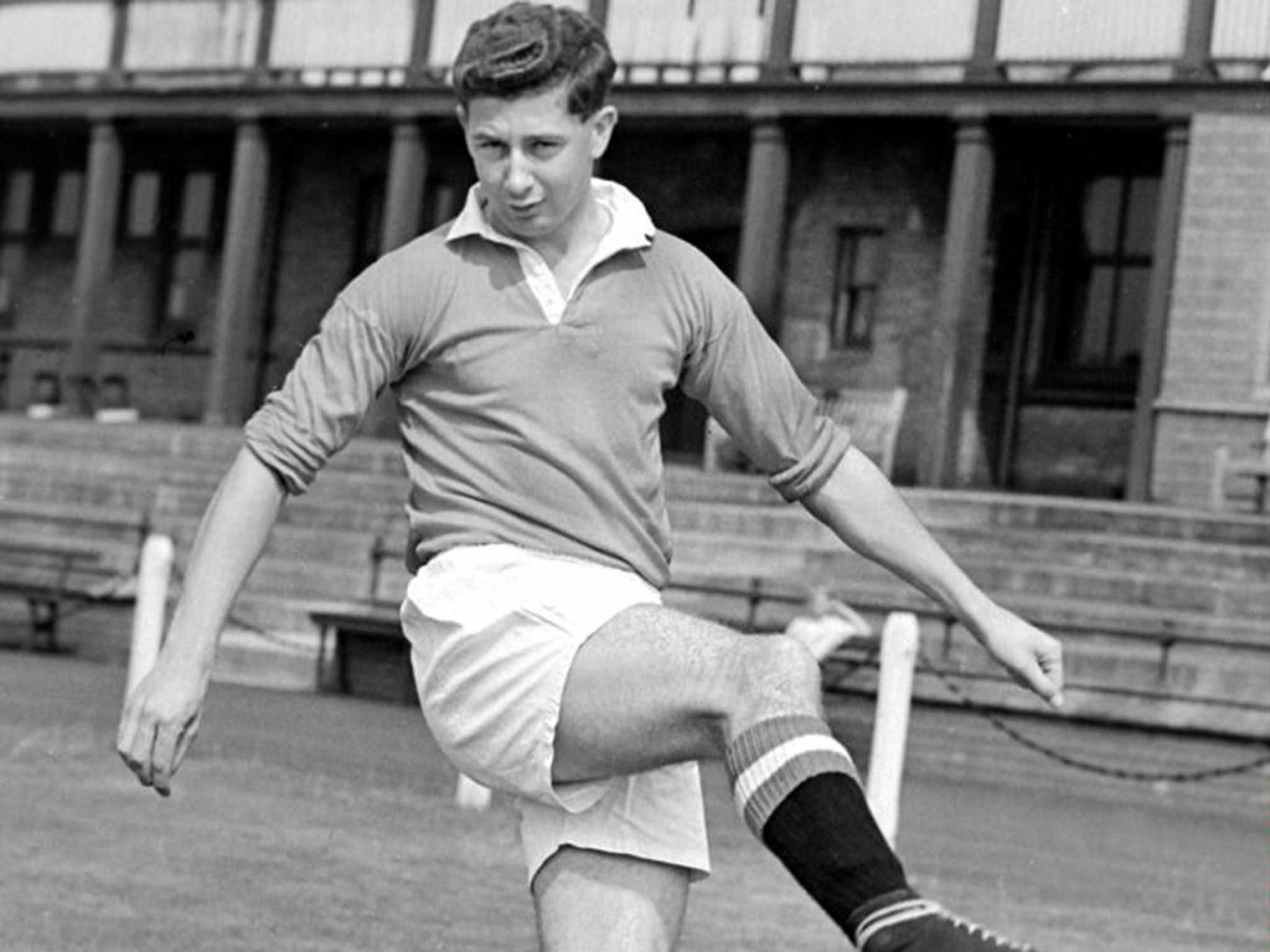Frederick Goodwin: Composed wing-half who helped Matt Busby rebuild Manchester United after the Munich air disaster
Goodwin proved not quite able to carve a long-term Old Trafford berth

Freddie Goodwin was a lanky, pleasingly constructive wing-half whose fledgling Manchester United career was blighted initially by the insurmountable obstacles of the incomparable Duncan Edwards and the precocious Eddie Colman. Then, when the young leviathan and his ebullient chum lost their lives in the Munich air disaster of 1958, Goodwin proved not quite able to carve a long-term Old Trafford berth, instead crossing the Pennines to join another United, Leeds.
Later he experienced success as manager of Birmingham City, leading the Blues into the top flight in 1972 and, while nurturing two future England strikers, Trevor Francis and Bob Latchford, kept them there for several seasons.
Turning professional in Manchester as a 20-year-old in October 1953, Goodwin emerged as one of the most stylish stand-ins in the League, a perceptive passer, so composed that he could appear almost languid. He was not picked to play in the European Cup away leg against Red Star Belgrade in February 1958, so was not on the plane which crashed on take-off from Munich on the way back to Manchester.
After the disaster, the thoughtful Lancastrian claimed a regular place in the side, playing in the 1958 FA Cup final defeat by Bolton Wanderers and not missing a match as, against all odds, a patchwork United finished as runners-up in the 1958-59 title race.
But as manager Matt Busby got to grips with team reconstruction, the Goodwin star descended and he was sold to Leeds for £10,000 in March 1960. That season he suffered relegation to the Second Division and then, having become more of a defensive operator, helped Don Revie’s men return to the top level as divisional champions in 1963-64.
Injury ended his Leeds days, then followed a stint as player-manager of Scunthorpe United before he proved himself one of the brightest young managers in the country with third-tier Brighton. In May 1970 Goodwin took over from the sacked Stan Cullis at Birmingham, guided his new charges to a post-war club record of 15 unbeaten home games in his first season, then inspired a revamped and revitalised side to promotion to the top division in 1971-72, when they also reached the FA Cup semi-finals.
An imaginative and enterprising strategist with bags of modern ideas – yoga, sports psychology, innovative training techniques – Goodwin presided over a 10th-place finish in 1972-73. Thereafter, results declined, and following another FA Cup semi-final defeat in 1975, he was dismissed that September. Later came success in the US with Minnesota Kicks and in the travel business.
A fine all-round sportsman, Goodwin also played 11 County Championship cricket matches for Lancashire as a fast-medium bowler in the 1950s.
IVAN PONTING
Frederick Goodwin, footballer, football manager and cricketer: born Heywood, Lancashire 28 June 1933; played for Manchester United 1953-60, Leeds United 1960-64, Scunthorpe United 1964-66; managed Scunthorpe United 1964-67, New York Generals 1967-68, Brighton 1968-70, Birmingham City 1970-75, Minnesota Kicks 1976-79 and 1980-81; died 19 February 2016.
Join our commenting forum
Join thought-provoking conversations, follow other Independent readers and see their replies
Comments
Bookmark popover
Removed from bookmarks